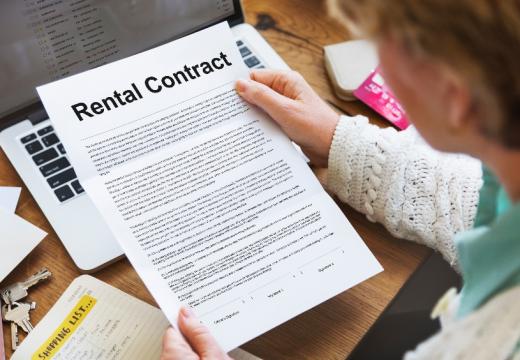A Guide To Renting In Ghana: 10 Key Laws Tenants Should Know
A Guide To Renting In Ghana: 10 Key Laws Tenants Should Know
- by PropHunt Admin
- On 05-01-2025
- at 6:18 PM

Renting out property in Ghana can be a lucrative venture, but it comes with many legal responsibilities. Understanding and abiding by landlord-tenant laws in Ghana is key to maintaining a harmonious and lawful rental relationship. We can find many agencies mainly in Ghana that ensure genuine rental properties.
Tenancy laws in Ghana can get a little tricky as the country has specific rules that differ considerably for both renters and property owners. The Rent Act of Ghana (Act 220) outlines several important laws that tenants should be aware of to protect their rights and responsibilities.
10 Crucial Laws Every Tenant Should Know In Ghana
Before moving into your rental apartment in Accra, you should be aware of your rights as a renter. Here’s a list of laws on renting in Ghana covering eviction, rent increase, and security deposit that we hope you find helpful.
1. Advanced Rent Payment
One of the first principles of guidance in renting in Ghana has to do with rent advance payment. Landlords in Ghana are not required to demand more than six months' rent in advance. Section 25 subsection 5 of the rent law states that during a short tenancy, the owner of the premises should not demand more than two months' rent in advance. If the tenancy in Ghana is longer than six months, the landlord should not demand more than six months' rent in advance.
2. Tenancy Agreements
The law indicates that a landlord of any premises should issue to the tenant a rent card (tenancy agreement) and that should define the terms and conditions in the written leases to avoid future misunderstandings. It shall include details like the name and address of the landlord of the premises, the name and address of the tenant, the amount of the recoverable rent of the premises, and any other prescribed particulars.
3. Rent Increases
As a tenant in Ghana, you should be aware that it is only the rent control department mandated by the law to ascertain whether rent should be increased or not. if applicable, when considering rent hikes, the landlord shall not collect from the tenant an increase of rent unless the landlord has notified the tenant previously in writing in the prescribed form of the amount of the old rent, the amount of the new rent, and where a part of the premises is let.
4. Tenant Eviction
Though the law empowers the landlord to evict tenants in Ghana but with valid reasons, such as non-payment of rent or violation of lease terms. If a landlord ejects a tenant for failing to pay an increased rent without an assessment from the rent control department commits an offence and is liable on conviction by the Rent Magistrate to a fine not exceeding two hundred penalty units or to a term of imprisonment not exceeding six months or to both the fine and the imprisonment.
5. Inducing Tenant To Eviction
If a tenant of premises has reason to believe that their eviction was intentionally orchestrated to compel them to relinquish possession of the property, such an act would be considered an offence under the law. The landlord and any other person involved are liable on conviction by the Rent Magistrate to a fine not exceeding one hundred and fifty penalty units.
6. Privacy Rights
As a tenant in Ghana, you deserve your privacy and the law recognizes that. Any landlord in Ghana who fails to provide reasonable notice before entering a rental property commits an offence and is liable on conviction by the Rent Magistrate. However, exceptions exist for emergencies such as fire or floods that may warrant the landlord to trespass on a rental property occupied by a tenant.
7. Sub-letting
In short, sublet means to rent out a room or an apartment to someone that you are already renting. So, for example, let's say you live in an apartment, and your name is on the original lease. After some time you realize you have a vacant room that you may want to rent out to someone. In this case, the person you would rent the room out to is called the “sublessee” while you, the original tenant are the “sublessor.” The law provides that a person shall not sub-let the premises without the written consent of the landlord.
8. Compensation for Improvements
Where a tenant who has made improvements to the rental, with the approval of the landlord, is processed for eviction before the prescribed period, the landlord of those rental properties shall pay compensation for the improvements made by the tenant. Do not move out immediately just because you received an eviction notice from a court, make sure you take what is rightfully yours.
9. Notice of Termination
If a landlord wishes to terminate a tenancy, they must provide proper notice. The length of this notice can vary, but generally, at least six months' written notice is required under certain circumstances. In a situation where this is not done the tenant reserves the right to contest the eviction in court.
10. Retaliation Protection
If a landlord in Ghana does something that appears to be a retaliatory action against tenants exercising their legal rights, commits an offence, and is liable on conviction by the Rent Magistrate to a fine. Landlords should familiarise themselves with rent laws protecting tenants from retaliation.

 French
French




